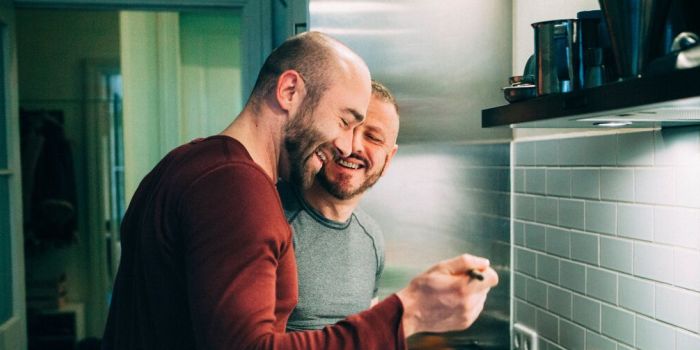How to prevent food poisoning
If you’ve ever had food poisoning, you’ll know just how nasty it can be. From a mild tummy upset to severe gastroenteritis, and potentially something even more serious, it can be tough for anyone to deal with. Read on to find out more.

Food poisoning isn’t just something to be aware of if you’re travelling abroad or eating out. Many people get ill from the food they eat at home. Storing, preparing, or cooking food in the wrong way can all make you unwell.
Here are some of my top tips on food safety.
Keep everything clean
- Wash your hands with soap and warm water before and after handling any food.
- Keep your work surfaces, chopping boards and utensils clean, washing them thoroughly in hot water, or use a dishwasher.
- Wash or change your tea towels and dishcloths regularly – they can hold on to bacteria, especially if they’re damp.
Store food correctly
- Check labels for advice on how to store food items. Bread, dry foods, tins, and jars are usually best stored somewhere cool and dry (such as a cupboard).
- Fresh foods like meat, dairy and ready meals need to be kept in a fridge or freezer.
- Keep your fridge at 5°C or below, and your freezer colder than –18°C.
- Keep raw meat and seafood separate from other foods in airtight containers at the bottom of the fridge.
- Any fresh foods need to be put in the fridge or freezer within two hours – whether that’s after shopping or cooking.
- Allow leftovers to cool to room temperature (for no more than two hours) first.
- You can keep leftovers for up to two days in the fridge.
- Don’t keep leftover rice for longer than 24 hours, and only reheat it once.
- Don’t refreeze defrosted foods unless you cook it first.
Prepare foods safely
- Don’t eat or freeze any foods that have passed their use-by date, even if it looks or smells fine. Best-before dates are a bit more flexible – you can eat food after this date as they are still safe, although the taste or texture might be impaired.
- Only take chilled foods out of the fridge when you’re ready to eat or cook them.
- Don’t defrost frozen foods at room temperature, as bacteria can start to grow as it defrosts. Instead, defrost in the fridge or use a microwave on the defrost setting.
- There’s no need to wash raw meat, such as chicken. This is likely to spread harmful bacteria onto worktops, utensils or yourself.
- Do wash fruit and vegetables with fresh water before you eat them.
- Use separate chopping boards and utensils to prepare raw meat or fish and clean them well after each use.
Cooking food
- Follow the instructions on packaging for cooking time and temperature. Remember to preheat your oven; if you don’t, this will increase cooking time.
- Make sure food is really hot – you should see steam coming out before you serve it. A food thermometer is a handy tool to check if food is cooked to the right temperature. It usually should be over 70°C for at least two minutes – but this will depend on what you’re cooking.
- Make sure meat is cooked all the way through. Aside from rare steaks, or lamb and beef joints, meat shouldn’t be pink in the middle. Use a clean skewer to pierce the meat in the thickest part; if it’s cooked properly, the juices will run clear.
- Always reheat pre-cooked food thoroughly so it’s steaming hot all the way through.
Do you know how healthy you truly are? Bupa health assessments give you a clear overview of your health and a view of any future health risks. You'll receive a personal lifestyle action plan with health goals to reach for a happier, healthier you.
-
Sources Sources
- Food safety. British Dietetic Association. bda.uk.com,published 19 August 2019
- Cleaning. Food Standards Agency.food.gov.uk, accessed 28 February 2024
- Chilling. Food Standards Agency. food.gov.uk , accessed 28 February 2024
- Avoiding cross-contamination. Food Standards Agency. food.gov.uk, last updated 4 August 2023
- Cold food storage. FoodSafety.gov. foodsafety.gov, last reviewed 19 September 2023
- Home food fact checker. Food Standards Agency.food.gov.uk, last updated 10 June 2022
- Best before and use-by dates. Food Standards Agency. food.gov.uk, last updated 1 November 2023
- Cooking your food. Food Standards Agency. food.gov.uk, last updated 9 August 2023
About our health information
At Bupa we produce a wealth of free health information for you and your family. This is because we believe that trustworthy information is essential in helping you make better decisions about your health and wellbeing.
Our information has been awarded the PIF TICK for trustworthy health information. It also follows the principles of the The Information Standard.

More diet and nutrition articles
Did you find our advice helpful?
We’d love to hear what you think. Our short survey takes just a few minutes to complete and helps us to keep improving our healthy lifestyle articles.
Legal disclaimer
This information was published by Bupa's Health Content Team and is based on reputable sources of medical evidence. It has been reviewed by appropriate medical or clinical professionals and deemed accurate on the date of review. Photos are only for illustrative purposes and do not reflect every presentation of a condition.
Any information about a treatment or procedure is generic, and does not necessarily describe that treatment or procedure as delivered by Bupa or its associated providers.
The information contained on this page and in any third party websites referred to on this page is not intended nor implied to be a substitute for professional medical advice nor is it intended to be for medical diagnosis or treatment. Third party websites are not owned or controlled by Bupa and any individual may be able to access and post messages on them. Bupa is not responsible for the content or availability of these third party websites. We do not accept advertising on this page.






